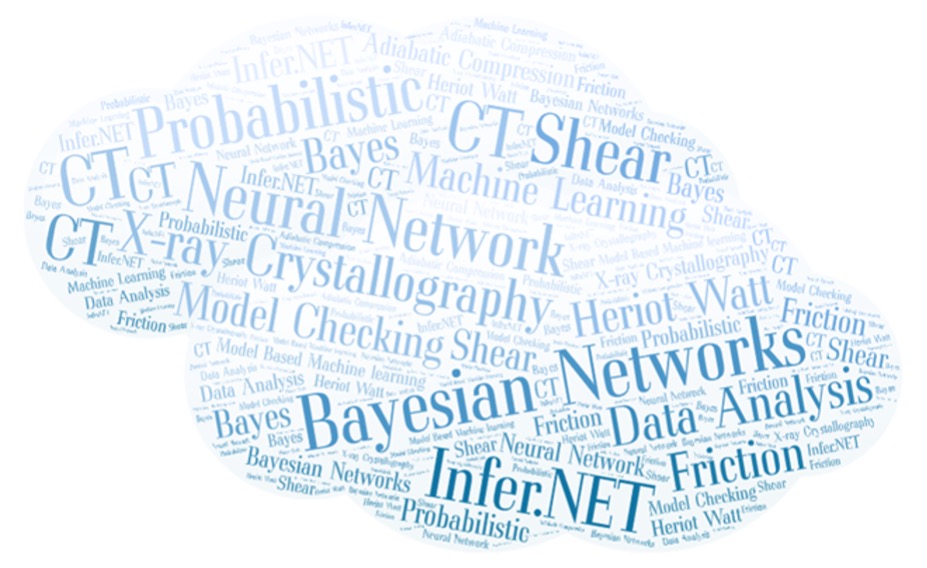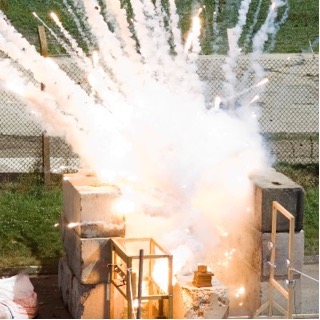Bits, bytes and explosives
05/10/2021

Back at the tail end of 2020 I had started to look for my next big challenge. I knew that I wanted it to be academically orientated and had, for as long as I could remember, wanted to do a PhD. Previously I had completed an MSc in Advanced Computer Science and over that period had gone from being an Artificial Intelligence (AI) sceptic to somewhat of an AI obsessive! I also had a first degree in Chemistry, so I started to look for PhD opportunities with most of the research based around Computer Science or even in Computational Chemistry.
Working on the Shrivenham site I had become aware of Cranfield University’s Defence and Security School based there and asking around a little I found people talking highly of the University -especially the applied nature of the work that the University was famous for, and the respect that they had for their students. So, I decided to apply for a funded PhD based in the Centre for Defence Chemistry. Being a relatively mature student, and that my Chemistry was a little rusty, I wasn’t confident of my success at interview, but duly did my best!

What a marvellous surprise when I was asked if I would like to be considered for two different PhD topics and found myself leaping at the chance to study for a PhD titled ‘Characterising the microstructure of composite explosives by mining CT-scan datasets’ which is all about making explosives safer. To do this I am examining CT scan data using Artificial Intelligence.

I needn’t have really worried about being a little older as Cranfield is exclusively a Postgraduate University and there really is a diversity of ages here; if anything, I have found that my life experience is particularly useful, and I really appreciate working with a range of students. In fact, although working mostly remotely for the last 6 months, the atmosphere amongst the students that I have met in person and online has been great!
Categories & Tags:
Leave a comment on this post:
You might also like…
Company codes – CUSIP, SEDOL, ISIN…. What do they mean and how can you use them in our Library resources?
As you use our many finance resources, you will probably notice unique company identifiers which may be codes or symbols. It is worth spending some time getting to know what these are and which resources ...
Supporting careers in defence through specialist education
As a materials engineer by background, I have always been drawn to fields where technical expertise directly shapes real‑world outcomes. Few sectors exemplify this better than defence. Engineering careers in defence sit at the ...
What being a woman in STEM means to me
STEM is both a way of thinking and a practical toolkit. It sharpens reasoning and equips us to turn ideas into solutions with measurable impact. For me, STEM has never been only about acquiring ...
A woman’s experience in environmental science within defence
When I stepped into the gates of the Defence Academy it was the 30th September 2019. I did not know at the time that this would be the beginning of a long journey as ...
Working on your group project? We can help!
When undertaking a group project, typically you'll need to investigate a topic, decide on a methodology for your investigation, gather and collate information and data, share your findings with each other, and then formally report ...
From passion to purpose: My journey at the Pinnacle of Aviation
By: Sultana Yassin Abdi MSc Air Transport Management, Current Student Born and raised in the vibrant landscape of the UAE, with roots stretching back to Somalia, my life has always been ...






